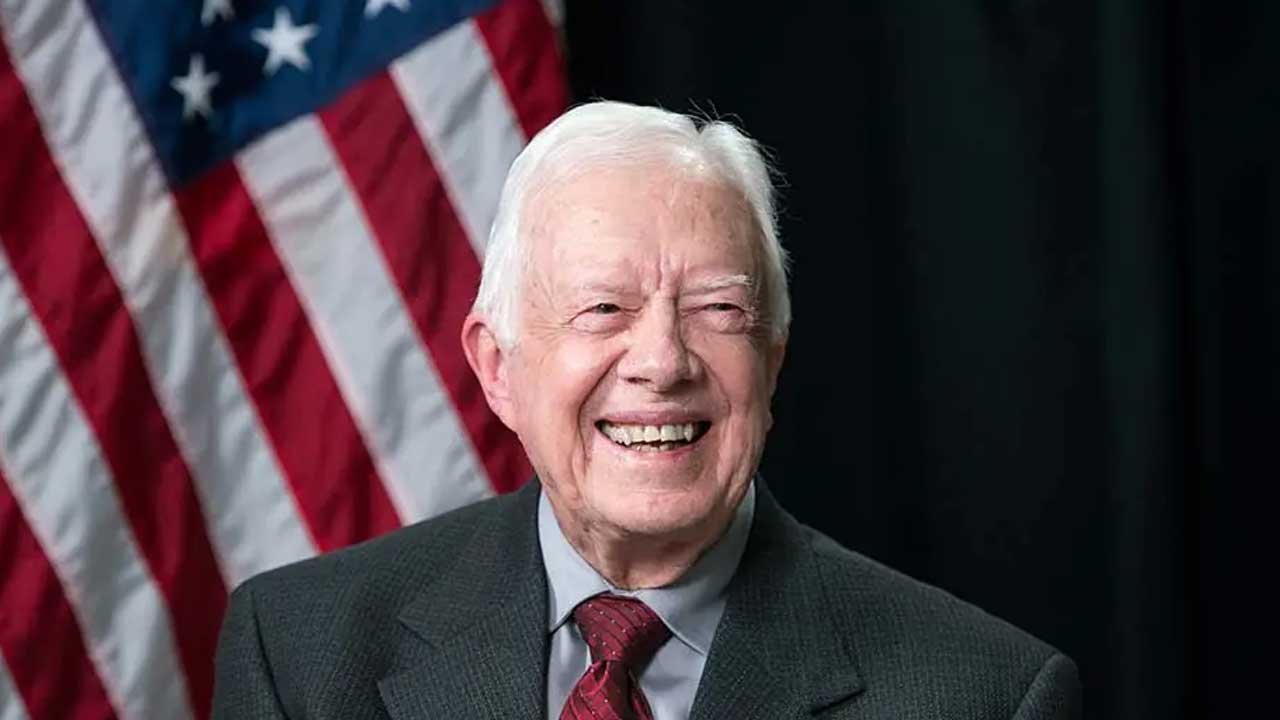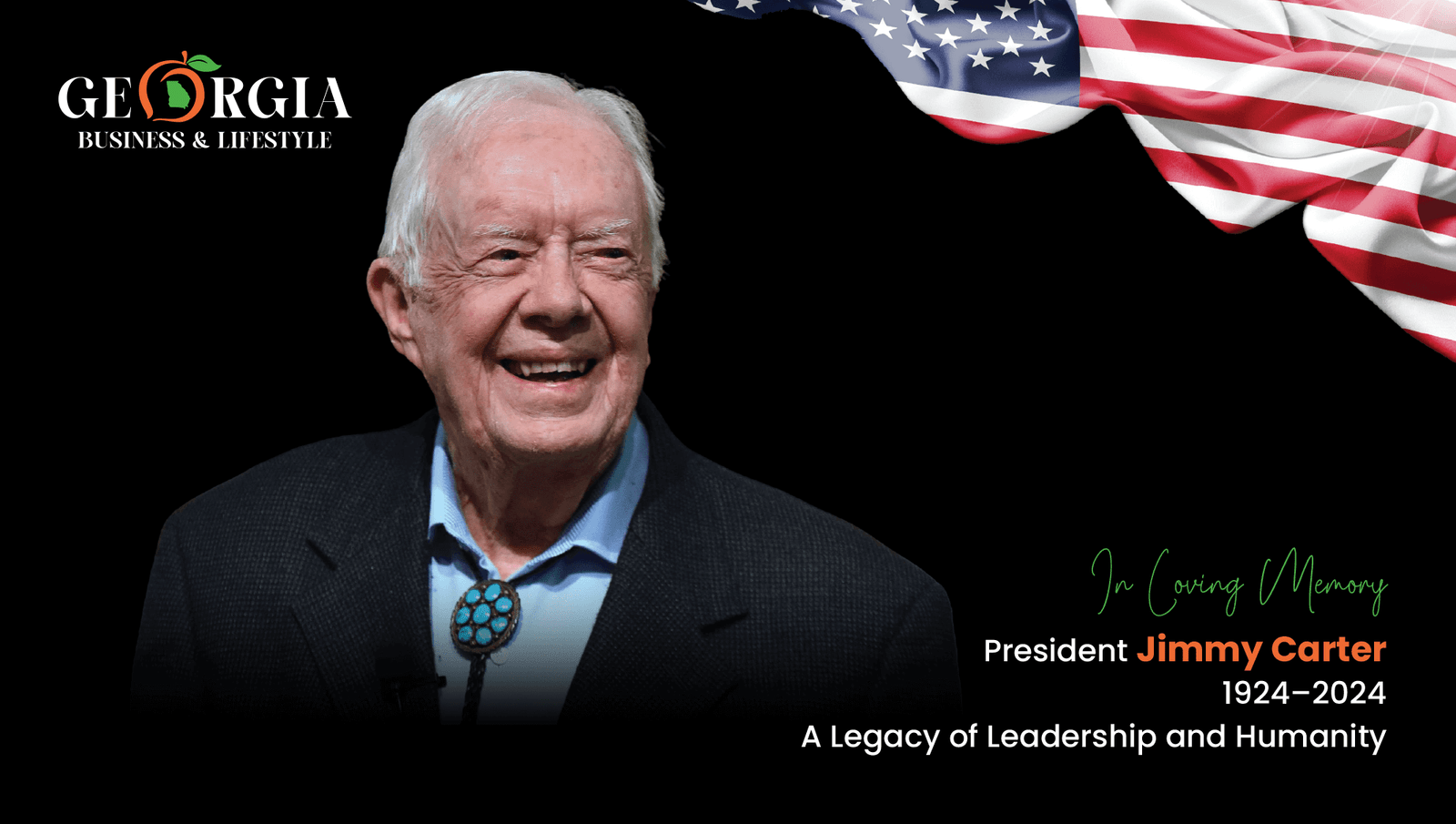By Vernell Burris, Jr.
On a quiet day in 2024, the world bid farewell to a towering figure in American history—Jimmy Carter, the 39th President of the United States. At the remarkable age of 100, Carter’s passing marked the end of a century-long journey filled with service, compassion, and an unwavering commitment to humanity.
From humble beginnings in Plains, Georgia, to the global stage, Jimmy Carter’s life embodied the ideals of principle, faith, and humility. He leaves behind a legacy not just as a president, but as a humanitarian and advocate for peace, justice, and human dignity.
Early Life and Career
James Earl Carter Jr. was born on October 1, 1924, in Plains, Georgia. Raised on his family’s peanut farm, Carter’s upbringing instilled in him the values of hard work, perseverance, and humility. After graduating from the United States Naval Academy in 1946, he served as a naval officer before returning to Georgia to manage his family’s business.
His early exposure to racial inequality in the segregated South deeply influenced his worldview. It was this awareness and sense of justice that propelled Carter into politics, where he served as a Georgia state senator and later as the governor of Georgia. His tenure as governor was marked by progressive policies, including the promotion of civil rights and the integration of Georgia’s schools.
Presidency: A Visionary Leader
Jimmy Carter took office in January 1977 during a time of economic and geopolitical challenges. As president, he emphasized energy conservation, environmental protection, and human rights. His administration brokered the historic Camp David Accords, which brought peace between Egypt and Israel and earned him widespread respect as a peacemaker.
Carter’s presidency was not without its difficulties, including the Iran hostage crisis and economic struggles at home. Despite these challenges, he maintained a moral compass that guided his decisions. “Carter’s presidency may not have been perfect, but his integrity and commitment to principles stood as a beacon of hope in uncertain times,” says Vernell Burris, Jr.
A Legacy Beyond the White House
Carter’s most enduring legacy lies in his post-presidential years. After leaving office in 1981, he founded the Carter Center, an organization dedicated to advancing human rights, eradicating diseases, and promoting democracy worldwide. His efforts in combating guinea worm disease alone have saved countless lives and earned global admiration.
In 2002, Jimmy Carter was awarded the Nobel Peace Prize for his decades of work in promoting peace and resolving conflicts. His life exemplified servant leadership, with a relentless focus on uplifting the marginalized and fighting for justice.
Personal Life and Faith
Throughout his life, Carter’s deep Christian faith guided his actions. As a Sunday school teacher in Plains, he emphasized the importance of humility, love, and service to others. Carter once said, “My faith demands that I do whatever I can, wherever I can, whenever I can, for as long as I can, with whatever I have, to try to make a difference.”
This philosophy shaped not only his policies but also his personal relationships. His marriage to Rosalynn Carter, spanning over seven decades, was a testament to partnership and shared purpose. Together, they were a formidable team, championing causes that touched millions worldwide.
A Reflection on His Legacy
As we reflect on the life of Jimmy Carter, we are reminded of the power of humility, faith, and service. His story is not just one of political achievements but of a lifetime dedicated to making the world a better place.
“Jimmy Carter showed us what it means to lead with integrity. He proved that greatness is not measured by power but by the positive impact we leave on the lives of others,” writes Vernell Burris, Jr.
As the nation mourns the loss of this extraordinary man, his legacy continues to inspire leaders and individuals across the globe. Jimmy Carter’s life was a masterclass in living with purpose and a reminder that even in the face of challenges, humanity has the capacity to rise above and strive for a better future.
Closing Thoughts
Jimmy Carter, the farmer-turned-president, leaves a legacy that transcends politics. He showed us that true leadership comes from the heart and that faith, compassion, and humility can change the world. As we bid farewell to this remarkable man, his lessons will live on, guiding generations to come.
Rest in peace, Jimmy Carter (1924–2024).









